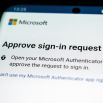
We use computers all the time. From catching up on the latest Netflix show to working on an important presentation for work, your computer is essential to your productivity. Some have the luxury of taking their computers home at the end of the day, while other workers must leave their device at their office. Either way, the idea of security and safety of your device is likely in the back of your mind.
There are many steps you can take to keep your computer secured while you're on and offline. We have four tips to get you started.
Keep the System Updated
It may be annoying having to download updates and restart your computer. However, it's in the best interest of the device's security to keep up with system updates.
Ignoring the update icon could prevent your device from patching significant holes in its firewall protection and security software. Without those updates, your device is left vulnerable to hacks and attacks. So, instead of ignoring the update notification, schedule the update for a time when you're not using the computer.
Look At Different Network Security Approaches
Keeping your device secured while connected to the company network is crucial. If you have no security in place, the data traveling to and from the network to your device is vulnerable to outside eyes peering in. That means any confidential data you're accessing, that could end up in the hands of the wrong person.
Look at different network security approaches. One option is Software-Defined Perimeter. It's a better security architecture approach that is becoming popular for network security. Instead of those connected to the network accessing all the data available, each device goes through a verification process first.
Another network security approach is through a virtual private network (VPN). VPN's are popular for both professional and personal scenarios. When activated, the VPN creates a virtual tunnel for your data to travel through. It makes it almost impossible for anyone other than yourself and your connected network to access the data.
Use Adequate Passwords
Your first line of defense is your password. If you use the same password for every device and account, and the password is something anyone could guess, you're basically taking away that first line of defense.
Don't neglect your passwords. Use a combination of upper and lower case letters, special characters and numbers. Stay away from combinations that reflect a birthday, anniversary, or a special date that someone else could easily find out. Although it's more to remember, it's best to use different passwords and change them frequently. If someone found out the password to one account, they wouldn't be able to access everything else you use the password for.
Consider Using Multi-Factor Authentication
Multi-factor authentication is another line of defense for protecting your device and accounts. Instead of relying on one password to log in, using this method calls for additional information before you can log in. It could be a second password, biometrics (fingerprint or facial recognition), or a numerical code texted to your phone.
Use the above four tips to get you started on securing your computer and the network you use. The more you can protect yourself, the more you're doing to protect the personal data you use every day.









